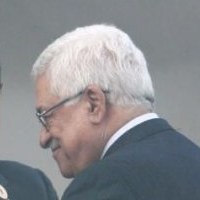![]()
Mon, Dec 13, 2010 | Prime Minister’s Office

Israeli Prime Minister Benjamin Netanyahu speaking at the business convention in Tel Aviv, Israel. (Photo by GPO)
Netanyahu: Talks should focus on ‘core issues’ that are at the root of the conflict
Israel Prime Minister Benjamin Netanyahu described the issue of settlements Monday as a “marginal” part of peace talks and said he was glad the United States had abandoned its demand for a renewed freeze, CNN reported on Monday.
Speaking at the Globes Business Conference in Tel Aviv, Israel, hours before he was scheduled to meet with U.S. special envoy George Mitchell, Netanyahu said talks should focus on “core issues” at the root of the conflict between Israelis and Palestinians.
“To reach peace, we need to discuss the issues that are really hindering peace, the question of recognition, security, refugees and, of course, many other issues,” he said.
Read the CNN report here.
PM Netanyahu’s Speech at the Globes Business Conference
Mon, Dec 13, 2010
Translation
I am pleased to be here with you all – with Professor Eugene Kandel, head of the National Economic Council, with leaders from the private sector and also from the public sector.
Israel’s economy over the past decade has been growing rapidly. Our goal should be to be included in the leading 15 countries in terms of per capita income within 15 years. It is an achievable goal. It won’t be easy, but it is possible if we experience growth of slightly over 1.5% in the GDP per year. If we do, we will be able to achieve this goal, with all that results from it.
This growth is necessary for our national and social needs in a time of crisis. There is no other way to find the funding for these things without growth. That is why the question we should be asking ourselves is: what are the most basic fundamental rules because of which we are where we are today, moving from a developing economy to a developed one? Another question we should discuss is how we can continue on that same path, because competition – just like in business – never stops. A national economy that is part of a global economy must always compete, and I claim that in order for us to continue competing, growing, and improving, and reach the goal I stated, we must follow five basic rules. If we follow these rules, they will protect us.
The first rule, which many countries have forgotten, sounds so simple, so boring, so trivial, but it is an essential first condition: don’t spend more than you make, don’t waste more than you earn. We experienced this rule first-hand, and we set policies that other countries are now being forced to set in very harsh restraint plans. We went through this in 2003, and we determined restrictions for government expenditures. These restrictions were anchored in a law that stated that government expenditures cannot increase more than one percent per year, and then only if Israel’s population increased by an average of 1.7% per year. This means that during one year, we decreased per capita spending the equivalent of three years in terms of per capita government expenditure. This protected us from what is currently happening in many countries in Europe or other places.
When we overcame the crisis, we increased this expenditure to 1.7%, in other words, equal to the increase in the population. Recently, we determined a fiscal rule. This rule takes two things into account: it takes into account our long-term growth over the past decade, and it takes into account our national debt – increase growth, spend more; decrease debt, spend more. Preserving the fiscal framework is crucial; it cannot be escaped, just as a household cannot escape it, just as none of your businesses can escape this framework. Don’t spend more than you make. It is perhaps one of the most powerful lessons learned over the past several years – in my opinion of the past decades. If one wants more security, more education, more welfare – cut something else. Money is not free. The framework must be maintained. However, this is not enough. There is one way to spend more and that is if there is growth. And in order to grow, in order to increase the GDP, one needs the second rule.
The second rule is that there is money to be made in growing economies: investors, employees, managers – everyone takes risks, makes an effort and works to make a profit. That is why one must ensure profit. Accordingly, one must ensure competitive tax rates. And therefore the aspiration is – as much as possible and whenever possible – to reduce tax rates. This issue has become part of the populist debate, and it has become part of all sorts of discussions I will expand on later. However, this is the rule, and it is gathering strength in the global economy, because people can move themselves or their money. So economies that provide better profits through lower tax rates attract more investors. That is why we were right in 2003 when we determined a plan for lowering tax rates, including corporate taxes which were reduced from an all-time high of 36% to half that – 18% by 2016. This step is necessary because it will eventually allow for growth of tax revenues that will in turn provide an answer to all our national needs: the elderly, Holocaust survivors, the disabled, education and our security and emergency systems.
Even reducing taxes as much as possible cannot alone ensure what we want because we know that the third rule is not just to preserve the fiscal framework and to make it worthwhile to invest and work, but we must also allow for innovation. Added value is the result of innovation, and innovation is the result not only of the talent of our population, but first and foremost of nurturing that talent through our renewed education system. That means at the high school and university levels.
We invested NIS 7 billion in our universities through a multi-year plan. We are opening dozens of centers of excellence – four are imminent, and we have determined that the fields of brain science, fuel alternatives, genetic pharmacology and cyber-computers will be the focus of those centers. I am usually cautious in determining, at a governmental level, directions for specific investments, but I think that this is the right choice, and we are ready to move forward. The interesting result of this is a reversal of the brain drain. Israelis are coming home, and they are returning from the best universities in the world. It is a good sign that they realize that Israel’s general economic framework is good, and therefore we must take advantage of this window of opportunity to bring them home and advance innovation.
Of course, this obliges us to make changes in the lower education system as well. I must say that the Minister of Education’s intentions and his actions in determining goals – the very fact of determining goals – has already improved results. I assume we will see these results in the past year’s exams. Of course, we cannot forget the introduction of computerized systems in elementary schools. I want to teach Israel’s children that the economy is not a zero sum; it is not a distribution plan. We don’t take from one and give to the other, although that is how it is discussed here in Israel. The economy means that you can distribute fruit only if you grow the tree, and in order to grow the tree, you need light and water – it must be worthwhile to grow the tree. Only then can you harvest the fruit, because fruit doesn’t grow on its own. Of course, in order to grow the tree, you need channels.
This brings us to the fourth rule. We must ensure that there is appropriate infrastructure here. Appropriate infrastructure includes water, and we discussed this yesterday in the Cabinet meeting. In fact, we will act to significantly expand our desalination plants by adding new plants. First we will expand and then we will add. Our intake of natural water has decreased while our use of water has increased along with the increase in our per capita GDP and the growth of our population. We must produce more water, and we will.
Infrastructure includes ground transportation networks – highways to the Galilee, the Galilee interchange, building highways in the Negev, a rail line to Eilat that will connect the Red Sea with the Mediterranean – to connect the Asian markets, or rather the Asian countries with the European markets. This means a train from Haifa, which we already began building, to Sheikh Hussein, with the possibility of connecting a rail line that would of course travel to Irbid and could eventually continue eastwards towards Iraq. There is a lot of sense in this – the British didn’t build these rail lines for no reason. The geographic sense of this can open a door to peace. Certainly the Palestinians could connect to this rail line at their industrial areas near Jenin and sell their goods both to Europe and, no less important, to the Arab world.
Infrastructure includes broadband. We travel the information highway at the speed of an old Russian tractor, and we are rapidly changing this.
Infrastructure includes erecting the fence along the southern border. Otherwise we will be flooded by illegal infiltrators from Africa, and this obliges us to act quickly in light of the developments in the Sudan. We are doing so already – we have placed a network of three barbed-wire fences along the border, and at the same time, we are preparing the infrastructure for the permanent border. This is a national infrastructure in the most basic sense.
These are things that are the government’s duty, and we are doing them after they were ignored for many years.
The fifth rule is to encourage the possibility of doing business with the least amount of State intervention. I must tell you that at times our bureaucracy is impossible. Government bureaucracy is intrusive, it is at times exaggerated, and we must make sure that the interface between private companies and the government is essentially minimal rather than impossibly maximal. Usually, we tend towards the latter and not the former. This inhibits the activity of the private sector, and as we hinder it and make things difficult, we make things difficult for ourselves. Only dealing with our bureaucracy will lead to the advancement of the Israeli economy and meeting our national needs.
We know that we need to deal with participation in the workforce, bringing people into the cycle of learning. We know that we need to ensure that all that we are doing with regards to land will be done faster. I call on my friend, Ofer Eini, to come and help complete the reform of the Israel Land Administration, because I view all we are doing as a cry from the field: change the structure of the ILA, allow us to build, develop, pave. This can be done much faster and include all the changes we want, including those we want to do in the Knesset in the Planning and Construction Committee, in order to ensure that there is a real reduction in bureaucratic red tape in order to move the country forward.
These are fundamental things we are trying to do. It is true that additional things have been done, and they too will serve as engines of growth. The breakthrough to Asian markets is primarily the task of entrepreneurs and companies. You have products, you will adapt them and you will sell them in the East. The government can help by opening doors. The economies of East Asia have no small measure of governmental bureaucratic obstacles, and the State can go in and help with that.
We will also increase our investment in research and development. We face the important development of a new sector of growth: in environmental protection and reducing greenhouse gases – in other words, Israeli industry; in recycling – in other words, Israeli industry; in the Sharon Park and other projects – in other words, Israeli industry. All of this growth will come, but my message to you today is that we must act consistently, according to the rules we followed to date. We must reduce or restrain our government expenditure. We must reduce taxes. We must invest in education. We must build up our infrastructures. And we must encourage initiative and cut bureaucracy. Someone asked me if we can see the implementation of these rules in other countries, and the answer is yes: in the successful ones. In those countries where they forgot these ironclad rules, we can see the results and we do not want to be in that position.
I look at Warren Buffet: he deals in high technology, he buys hi-tech companies. He bought one in Israel. However, in the end, he acts according to simple, clear and evident economic rules. More than anything else, what gives us this result is consistency is following these rules. That is why we must act in the same manner. We must act according to these rules because the world is impressed by them and Israelis enjoy them.
And now on to political matters, because I feel they are important. Today U.S. Special Envoy George Mitchell is coming to Israel. He will talk with me today, and tomorrow he will travel to the Palestinian Authority to talk with Abu Mazen. I believe that the United States has succeeded in understanding after a year and a half that we were, in fact, on a dead end road, in a discussion that was in great measure unproductive regarding the peripheral issue of construction, of additional construction in the settlements. The United States understood that what is important is getting to the important issues, the substantial issues, including the core issues that are at the root of the conflict between us and the Palestinians. I welcome the fact that it made this decision, although in the discussions we conducted, we were prepared to examine an additional extension of the moratorium.
The United States came to the conclusion, maybe even on the first day, regarding the additional 90 days, that if the Palestinians came to the table, they would talk about the ninety-first day, about extending the moratorium. This is not the way to achieve peace. In order to achieve peace, the issues that are truly delaying the peace must be discussed: the question of recognition, the question of security, the question of various arrangements, refugees, etc., and of course many additional issues.
I welcome the fact that we will begin our discussions on these issues; we will narrow the gaps; and probably later on, when these gaps are narrowed, we will also begin direct negotiations with the goal of reaching a framework peace agreement. What we are doing now, in my opinion, is a necessary condition for genuine, concrete discussions regarding the core questions through which a peace agreement can be reached. Therefore, I welcome this American decision. It is good for Israel and it is good for peace.
Thank you very much.



 RSS
RSS
















#Netanyahu : Talks Should Focus On Core Issues That Are At The Root Of The Conflict | #Israel #Peace #US http://j.mp/h2UOth
Netanyahu: Talks should focus on 'core issues' that are at the …: I look at Warren Buffet: he deals i… http://bit.ly/hoRq8S #asematy
Netanyahu: Talks should focus on 'core issues' that are at the …: I look at Warren Buffet: he deals i… http://bit.ly/hoRq8S #asematy